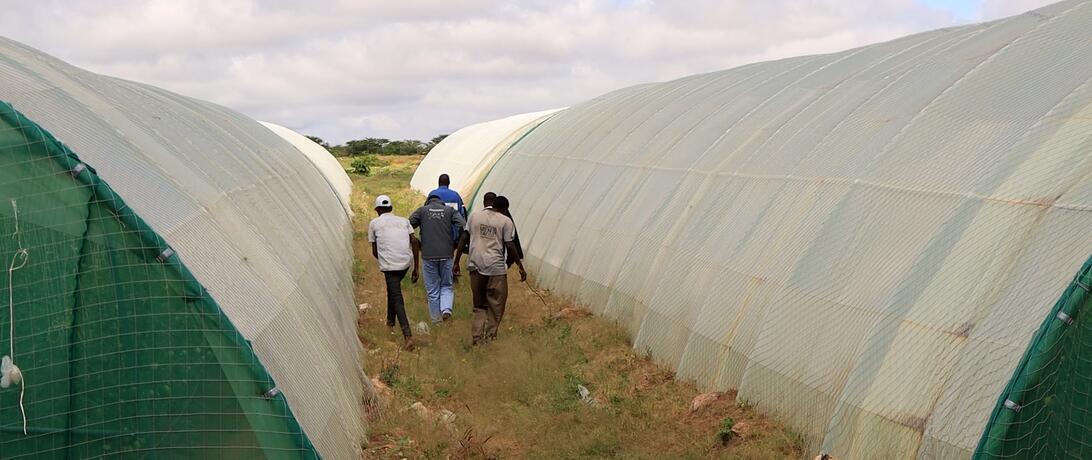Year-Round Production with Greenhouses
Gobsoor Farm operates over 15 greenhouses, ensuring a continuous supply of crops like tomatoes throughout the year. The farm’s advanced infrastructure includes two boreholes, drip irrigation systems, and solar-powered water pumps, all contributing to efficient and sustainable farming practices.
Strategic Investment and Modern Farming Techniques
Thanks to a significant investment from the Nordic Fund, Gobsoor Farm has enhanced its operations with new greenhouses, tractors, transportation, drip irrigation systems, pipes, solar panels, and water pumps. The farm also benefits from the expertise of Kenyan greenhouse technician and agronomist, Charles Ouma Okulo, who trains local staff in modern farming techniques, ensuring the transfer of valuable skills and knowledge.
Impact on Sustainable Peace and Economic Development
The farm’s innovative approach to agriculture not only boosts productivity but also contributes to sustainable peace in the region. By providing stable employment and fostering economic growth, the farm helps to alleviate poverty and reduce conflict. The improved production processes and sustainable practices set a precedent for other farms in the region, promoting a more resilient and self-sufficient agricultural sector.
Benefits of Using Greenhouses in Hargeisa, Somaliland
- Water Efficiency: Greenhouse farming with drip irrigation significantly reduces water usage, which is crucial in arid regions like Hargeisa. This method can save up to 80% of water compared to traditional farming.
- Increased Productivity: Greenhouses enable year-round cultivation, leading to higher yields and a consistent supply of crops. This stability is essential for food security and economic resilience.
- Climate Resilience: Greenhouses protect crops from extreme weather conditions, pests, and diseases, ensuring a more reliable and higher quality harvest.
- Economic Growth: Greenhouses contribute to economic development by increasing agricultural productivity. This growth creates jobs, reduces poverty, and fosters a more stable and peaceful society.
- Skill Development: Training local and visiting farmers in modern greenhouse techniques enhances their skills and knowledge, leading to better farming practices and increased productivity in the community and beyond.
By adopting greenhouse farming, regions like Hargeisa can achieve sustainable agricultural growth, contributing to long-term peace and prosperity while providing more delicious and nutritious fruits and vegetables for the community to enjoy.

